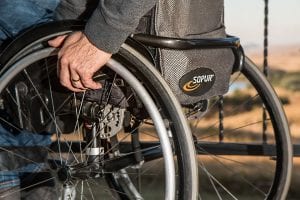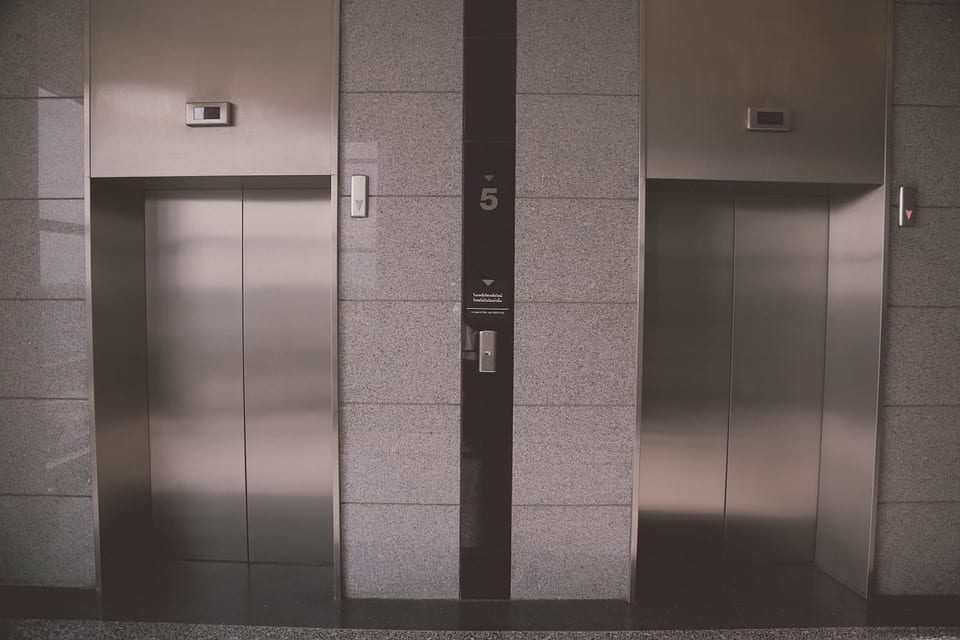While he ruled that some accommodations were adequate under the law, he found that the MTA had not provided enough evidence for him to determine that its current elevator outage notifications or its training of MTA employees were enough.
New York, NY—On Friday August 30, a federal judge in the Southern District of New York denied a motion from the New York Metropolitan Transportation Authority (“MTA”) for summary judgment to dismiss claims brought by the disability community in long-running litigation regarding the MTA’s failure to maintain the few elevators that exist in New York City’s subway stations. The case is now headed to trial.
The class action lawsuit was filed in April 2017 on behalf of a coalition of disability rights organizations and individuals who use wheelchairs by Disability Rights Advocates and co-counsel Sheppard Mullin.
The decision follows the Second Circuit Court of Appeals’ ruling in 2021 in favor of Plaintiffs and remanding the case for the district court to assess the adequacy of Defendants’ purported accommodations for people with disabilities when elevators go out of service. On remand, Defendants moved for summary judgment, arguing that they provide sufficient accommodations during elevator outages.
Judge George B. Daniels denied Defendants’ motion. While he ruled that some accommodations were adequate under the law, he found that the MTA had not provided enough evidence for him to determine that its current elevator outage notifications or its training of MTA employees were enough to accommodate riders with disabilities who confront elevator outages. Read the Federal Court’s decision.

“People with disabilities are stranded every day and routinely suffer severe disruption to their daily lives because of constant elevator outages across the subway system,” said Madeleine Reichman, Senior Staff Attorney at DRA. “When that happens, riders are often left without the ability to get to their destinations on time. We’re pleased the Court recognized that the MTA failed to prove that it provides adequate notifications to riders with disabilities or to adequately train its employees, and we will continue to fight to ensure that subways elevators work.”
About Bronx Independent Living Services (BILS):
Founded in 1983, Bronx Independent Living Services (BILS) is a consumer-based, non-profit organization providing services and advocacy for independent living for individuals with disabilities. BILS’s mission is to ensure full integration, independence, and equal opportunity for all people with disabilities by removing barriers to the social, economic, cultural, and civic life of the community. For more information, visit www.bils.org.
About Brooklyn Center for Independence of the Disabled (BCID):
The Brooklyn Center for Independence of the Disabled, founded in 1956, is part of the independent living movement, which seeks to empower all people with disabilities to live full, independent lives. Our staff, composed largely of people with disabilities, offers services and runs advocacy campaigns to make housing, transportation and other aspects of daily living accessible to all. For more information, visit www.bcid.org.
About Center for Independence of the Disabled, New York (CIDNY):
The Center for Independence of the Disabled in New York is a leading advocate for people with disabilities in New York City. It was founded in 1978 to ensure full integration, independence and equal opportunity for all people with disabilities by removing barriers to the social, economic, cultural and civic life of the community. For more information, visit www.cidny.org.
About Disabled In Action of Metropolitan New York (DIA):
Founded in 1970, Disabled in Action of Metropolitan New York is a democratic, nonprofit membership organization consist primarily of and is directed by people with disabilities. DIA is a civil rights organization committed to ending discrimination against people with disabilities. DIA fully embraces the empowering motto “Nothing about us, without us!” For more information, visit www.disabledinaction.org.
About Disability Rights Advocates (DRA):
Disability Rights Advocates is one of the leading nonprofit disability rights legal centers in the nation. With offices in Berkeley, California and New York City, DRA’s mission is to advance equal rights for people with all types of disabilities nationwide. DRA’s work in New York City has resulted in making half of the City’s yellow taxi fleet accessible to wheelchair users, a federal court order requiring the City to make its voting sites accessible, and a victory at trial in a class-action lawsuit challenging New York City’s failure to plan for the needs of persons with disabilities in disasters such as Hurricane Sandy. More information can be found at www.dralegal.org.
About Harlem Independent Living Center (HILC):
Harlem Independent Living Center was incorporated on May 31, 1990 to provide access to independent living services to these un-served and underserved individuals and to expand the system of independent living available to all New Yorkers. HILC assists the communities of people with disabilities in achieving optimal independence through culturally and linguistically appropriate services by advocating, educating, empowering and being a community change catalyst. For more information, visit www.hilc.org.
About New York StateWide Senior Action Council:
Founded in 1972, StateWide’s mission is to achieve through united action the dignity, well-being and security of all senior citizens of New York State. StateWide is a grassroots membership organization of individual senior citizens and senior citizen clubs throughout New York State. StateWide works to achieve its mission through trainings, educational workshops, legislative advocacy, direct consumer assistance, and monitoring programs and services for the elderly of New York State.
About Sheppard, Mullin, Richter & Hampton LLP:
Sheppard Mullin is a full-service Global 100 firm with more than 900 attorneys in 15 offices located in the United States, Europe and Asia. Since 1927, industry-leading companies have turned to Sheppard Mullin to handle corporate and technology matters, high-stakes litigation and complex financial transactions. In the U.S., the firm’s clients include almost half of the Fortune 100. For more information, please visit www.sheppardmullin.com.


Join the conversation!